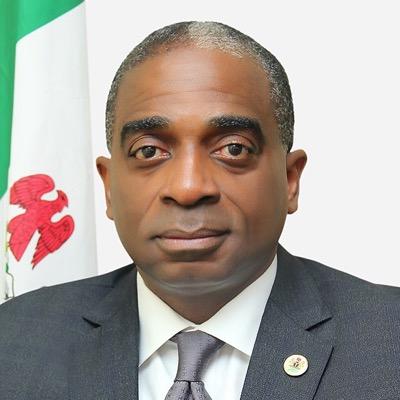
The Executive Director/Chief Executive of Nigerian Export Promotion Council (NEPC), Olusegun Awolowo on Thursday lamented the inability of the Nigerian Maritime Administration and Safety Agency (NIMASA) to release the 10 percent levies on freights collection to NEPC as stipulated by law.
He said the delay constituted a major handicap to providing export incentives to proposed beneficiaries. He also disclosed that the country’s oil export earnings had dropped by 40 percent largely due to the country’s inability to improve on the quality and standard of it primary export products.
He said most of the country’s export products were currently in non-processed level, making it difficult to generate the much-needed foreign exchange as the country looks to diversify its revenue base from oil.
Speaking at the ongoing 22nd seminar of Finance Correspondents and Business Editors (FICAN) in Abakaliki, Ebonyi State, further said the inability of the Nigerian Maritime Administration and Safety Agency (NIMASA) to release 10 percent levies on freights collections to NEPC as stipulated by law, was one of its major handicaps to providing export incentives to proposed beneficiaries.
According to him, a total of about N300 million is currently being owed the council by NIMASA. Nevertheless, he said the high level of non-processed export items constituted an impediment to improvement in earnings and volume of its non-oil exports.
Represented at the seminar by a Director in NEPC, Barr. George Enyiekpon, the NEPC boss said the country’s non-oil export products have remained at non-processed levels and this has had limitations on the standards, quality and accruals from the sector.
In his paper delivery titled:”Towards Efficient Institutional Arrangements for Non-oil Export Finance in Nigeria”, Awolowo said the non-oil sector holds enormous foreign exchange potentials for the country but had not been fully exploited despite being endowed with solid minerals and agriculture.
He blamed the decline in non-oil export earnings on limited local content value addition, products mostly exported in the primary forms and challenges associated with poor infrastructure, power, standards, finance, skills and capacity.
He said with the fall in crude oil price by about 50 percent, the NEPC believed now is the time for Nigeria to intensify efforts at diversifying the economy and maximize the potentials inherent in non-oil sector export.
Awolowo said since inception in 1976, the Nigerian Export Promotion Council with the core mandate to develop, promote, assist and play a leading role in the creation of export incentives, has lived up that expectation by positioning the Nigerian export market as the growth opportunity of choice for private sector earnings and sustainable economic development.